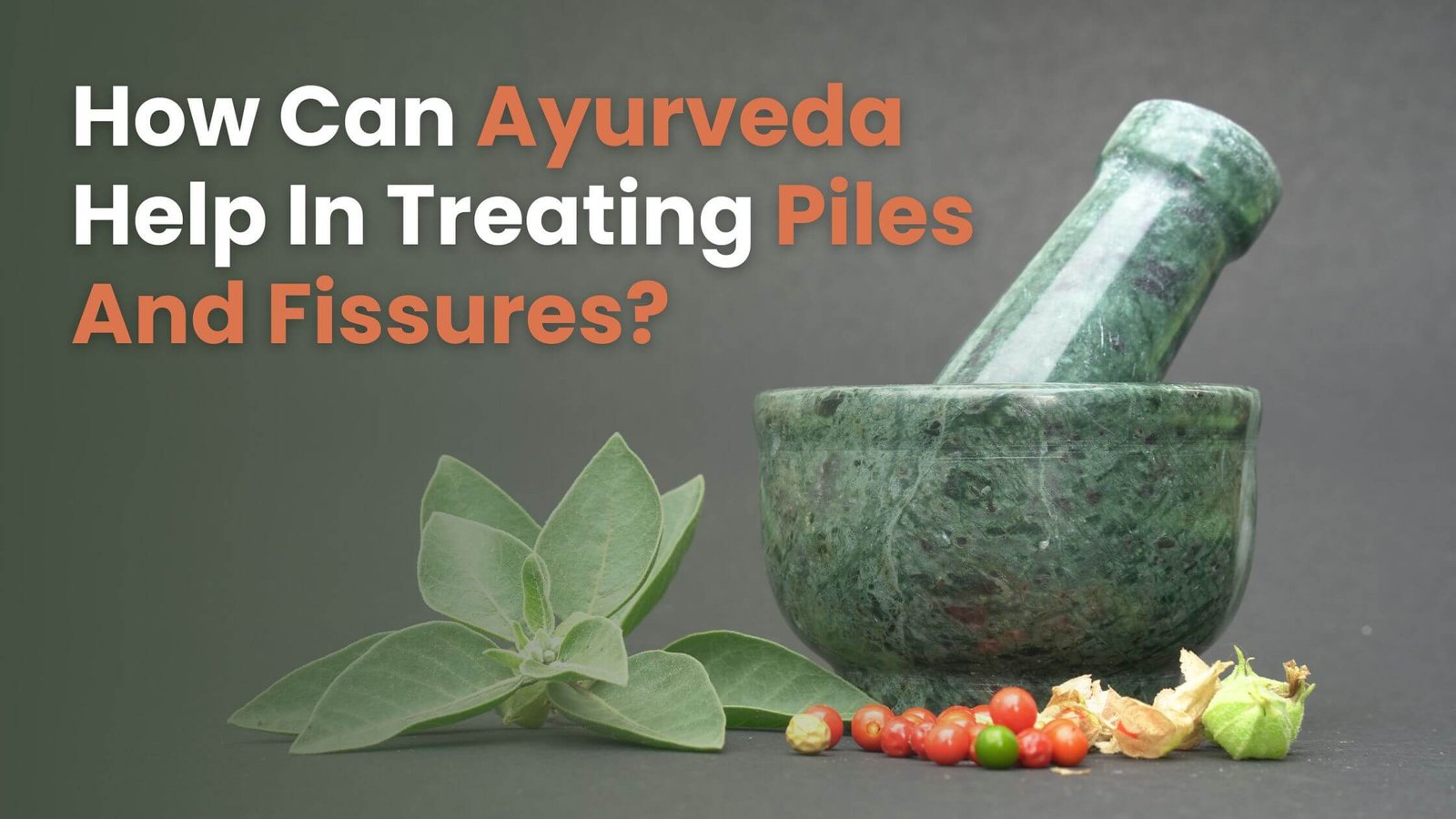Piles and fissures are common digestive issues that cause discomfort and pain. Many people turn to Ayurveda for natural relief. This blog will explore the causes of piles, Ayurvedic treatments, and ways to manage these issues naturally.
Understanding Piles: What is Piles?
Piles, also known as hemorrhoids, are swollen veins in the lower rectum and anus. They can cause itching, pain, and bleeding, especially during bowel movements. Fissures are small tears in the lining of the anus, which can also cause discomfort and pain.
Causes of Piles
1. Excessive Straining While Emptying Bowels
Straining while passing stools puts pressure on the veins in the rectum, leading to the development of piles. This often happens when a person struggles with hard stools.
2. Chronic Constipation
Constipation is one of the major causes of piles. When a person has difficulty in regular bowel movements, it can lead to repeated straining, worsening the condition over time.
3. Obesity
Carrying excess weight increases pressure on the veins in the lower rectum, making it easier for piles to develop. Maintaining a healthy weight helps to reduce the risk.
4. Being Pregnant
Pregnancy can lead to piles due to the pressure the growing baby puts on the mother’s blood vessels. Hormonal changes during pregnancy can also make constipation more likely, adding to the problem.
5. Regular Heavy Lifting
Frequent heavy lifting can cause strain on the body, especially the lower abdominal area. This strain increases the likelihood of developing piles over time.
6. Eating a Low-Fiber Diet
A low-fiber diet leads to harder stools, which makes passing them difficult. This can result in straining, a key cause of piles. A fiber-rich diet helps maintain soft, regular bowel movements.
7. Eating Too Many Spices
Spicy foods can irritate the digestive system, leading to discomfort and worsening symptoms in those already suffering from piles. Moderating the intake of spicy foods can be beneficial.
Ayurveda’s Take on the Digestive Concerns Relating to Piles
How to Manage and Prevent Piles Naturally?
1. Don’t Hold the Urges
Ignoring the urge to empty the bowels can worsen constipation and lead to straining later. It’s essential to listen to your body and avoid delaying visits to the restroom to prevent pressure buildup in the rectum.
2. Improve Your Diet
Including more fiber-rich foods like fruits, vegetables, and whole grains in your daily diet helps soften stools and makes them easier to pass. Hydration is also crucial, as drinking enough water can prevent constipation.
3. Exercise Regularly
Staying physically active helps maintain regular bowel movements and reduces the risk of constipation. Even light exercises like walking can improve digestion and prevent the development of piles.
How Can Ayurvedic Medicine Help in Treating Piles and Fissures?
1. Touch-Me-Not Plant
Known for its healing properties, the touch-me-not plant is used in Ayurveda to reduce inflammation and relieve pain caused by piles. Its soothing nature makes it effective in managing symptoms naturally.
2. Triphala
Triphala is a traditional Ayurvedic remedy known for its ability to regulate digestion. It helps cleanse the digestive system, soften stools, and prevent constipation, making it an ideal treatment for piles.
3. Guggul for Piles
Guggul is widely used in Ayurvedic medicine for its anti-inflammatory properties. It helps reduce swelling and pain in the affected area, providing relief from piles symptoms.
4. Turmeric
Turmeric is a natural anti-inflammatory and antibacterial spice. It helps reduce inflammation in the anal area and can speed up the healing process of both piles and fissures. Turmeric can be applied topically or consumed to help ease symptoms.
Conclusion
Piles and fissures can be painful and uncomfortable, but with proper management and Ayurvedic treatments, relief is possible. From dietary changes to natural remedies for piles like the touch-me-not plant and turmeric, Ayurveda offers a holistic approach to treating and preventing piles.
FAQs
1. Can piles heal on their own?
In some cases, mild piles can heal without treatment by making dietary and lifestyle changes. However, for more severe cases, medical treatment or surgery may be required.
2. Are piles and fissures the same?
No, piles are swollen veins in the rectum or anus, while fissures are small tears in the lining of the anus. Both can cause pain, but they are different conditions.
3. Can Ayurvedic treatments completely cure piles?
Ayurvedic treatments can help manage symptoms and reduce discomfort. In many cases, they may prevent the condition from worsening, but severe cases may require additional medical intervention.
